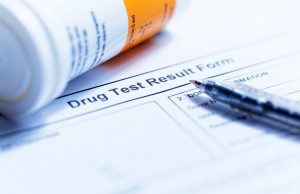On May 10, the Department of Labor officially nullified a rule passed during the Obama administration that limited states’ ability to require mandatory drug testing for individuals applying for unemployment benefits.
As we covered in an earlier blog, OSHA’s new electronic recordkeeping rule (which is currently the subject of legal challenge) contains anti-retaliation language which OSHA has interpreted as preventing employers, except in limited situations, from implementing mandatory post-accident drug testing.
Although the nullified rule was issued by the Department of Labor Employment and Training Administration, one reading tea leaves might well predict that the principle at play may well extend to OSHA’s retaliation rule soon. Read More
 In a prior blog, we discussed OSHA’s recently enacted anti-retaliation rule which says, among other things, that employers cannot deter injury and illness reporting or retaliate against employees for such reporting. The rule itself does not expressly address drug-testing but the preamble makes clear that OSHA believes mandatory post-accident drug testing would be retaliatory. However, OSHA further stated that mandatory post-accident drug testing to comply with the requirements of a state or federal law or regulation is permissible. Mandatory post-accident testing to receive workers’ compensation discounts is also lawful. In other words, such testing would not be retaliatory because there is a lawful and valid reason that permits or requires such testing.
In a prior blog, we discussed OSHA’s recently enacted anti-retaliation rule which says, among other things, that employers cannot deter injury and illness reporting or retaliate against employees for such reporting. The rule itself does not expressly address drug-testing but the preamble makes clear that OSHA believes mandatory post-accident drug testing would be retaliatory. However, OSHA further stated that mandatory post-accident drug testing to comply with the requirements of a state or federal law or regulation is permissible. Mandatory post-accident testing to receive workers’ compensation discounts is also lawful. In other words, such testing would not be retaliatory because there is a lawful and valid reason that permits or requires such testing.